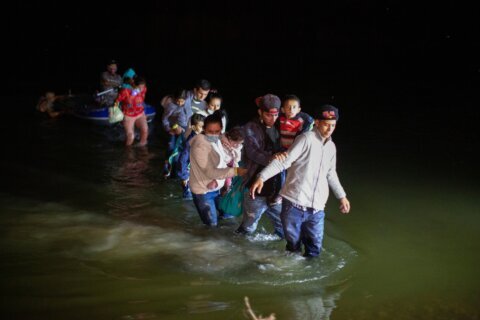New parents are sent home from the hospital with diapers, swaddles, snot suckers — all the basics one might need to take care of a new baby. But what you don’t get is a user manual. It turns out, there are no doctor-prescribed operating instructions for what to do when that tiny human won’t eat, won’t sleep and won’t stop crying.
Instead, sleepless moms and dads are inundated with unsolicited advice from friends and family, plus a barrage of conflicting information from books and blogs on how to raise a kid.
How does one begin to make sense of it all? That’s where Emily Oster comes in. In her latest book, “Cribsheet: A Data-Driven Guide to Better, More Relaxed Parenting, From Birth to Preschool,” the Brown University economics professor and author of “Expecting Better” digs through all of the research and presents parents with what the science says about breast-feeding, sleep training, education and more. The whole point, Oster said, is to let parents make their own informed decision based on what works best for them and their child.
“The first piece of good decision making is having the right evidence,” Oster said. “How else do you make sense of so much conflicting advice, especially when it comes from different people that you trust?”
Here are some take-aways from “Cribsheet”:
Sleep
Sleep can be one of the most frustrating topics for new parents. Current guidelines recommend that infants should be put to sleep on their backs in a crib free of blankets and stuffed animals to reduce the risk of SIDS (sudden infant death syndrome). The American Academy of Pediatrics also encourages parents to sleep in the same bedroom as their infant.
Yet, some parents prefer to have their babies sleep in a separate room. Others choose to co-sleep with their babies in their own beds.
“Part of what’s so hard about this advice is one minute somebody tells you that you have to keep the kid in bed with you, otherwise they feel abandoned. And then the next minute, someone says it’s incredibly dangerous to do that,” Oster said.
Rather than giving a definitive answer, Oster tells parents what the research says: Infants who sleep on their backs are at lower risk for SIDS; there is moderate evidence that bed-sharing is risky; and sleeping on the sofa with an infant is dangerous. She lets the reader weigh the pros and cons, so that if having the baby sleep in another room helps the parents get some sleep, for example, they can feel empowered to make that decision.
As far as co-sleeping goes, Oster said, “If you do it in the safest way possible — you’re not smoking, you’re not drinking, there aren’t a lot of blankets in the bed — there is some increased risk from co-sleeping, but it is a very small number.”
She added, “And so for some families, they’re going to look at that data and say, ‘Yeah, you know, actually this is a choice that I want to make because this co-sleeping environment, this is the thing that we think is going to work for our family.’ … And I think this really does highlight the importances of thinking about differences across families. It’s hard to take somebody else’s advice because they’re not you.”
Breast-feeding
Google “benefits of breast-feeding” and a number of studies come up, promising everything from better relationships in your infant’s future to a lower risk for obesity and allergies.
And while Oster said breast-feeding does come with a lot of perks (improvements in digestive health for babies and some reductions in breast cancer risk for mom), it also comes with a lot of misinformation. (Newsflash: Breast-feeding will not make or break your child’s chances of landing a full ride to an Ivy League school, nor will it lead to better friendships.)
“I think I would like people to take away a little bit more of a balanced view of the benefits,” Oster said.
“And so I think what would be better to communicate to women is, ‘Yeah, breast-feeding may be great and is maybe something you should try because you could like it and have some benefits, and by the way, here are some ways we can help you make it work,’ but not to try to shame women who choose not to or for whom it doesn’t work.”
A few other highlights:
1. Oster’s research found that the cry-it-out method of sleep training does not damage a child. Plus, sleep training can reduce maternal depression and improve marital satisfaction.
2. Swaddling, when done correctly, has been shown to reduce crying and improve sleeping.
3. Don’t shy away from the peanut butter: Research shows allergens should be introduced early to help children avoid developing allergies.
4. Early potty training is not linked to a higher IQ.
5. Children under 2 can’t learn much from TV, but children ages 3 to 5 can, especially with high-quality programming.
6. Kids in day care are not more detached from their parents. And parents who stay home do not give their children an advantage over parents who work. “Whether you choose to work or not, the outcomes for kids are likely to be very similar,” Oster said.
7. There’s not enough data yet to determine the effect screen time (iPad, iPhones, etc.) has on kids in the long run. “This is a place where we’re just not in as good of a position as we’d like to be in terms of what we can learn from the data,” Oster said.







